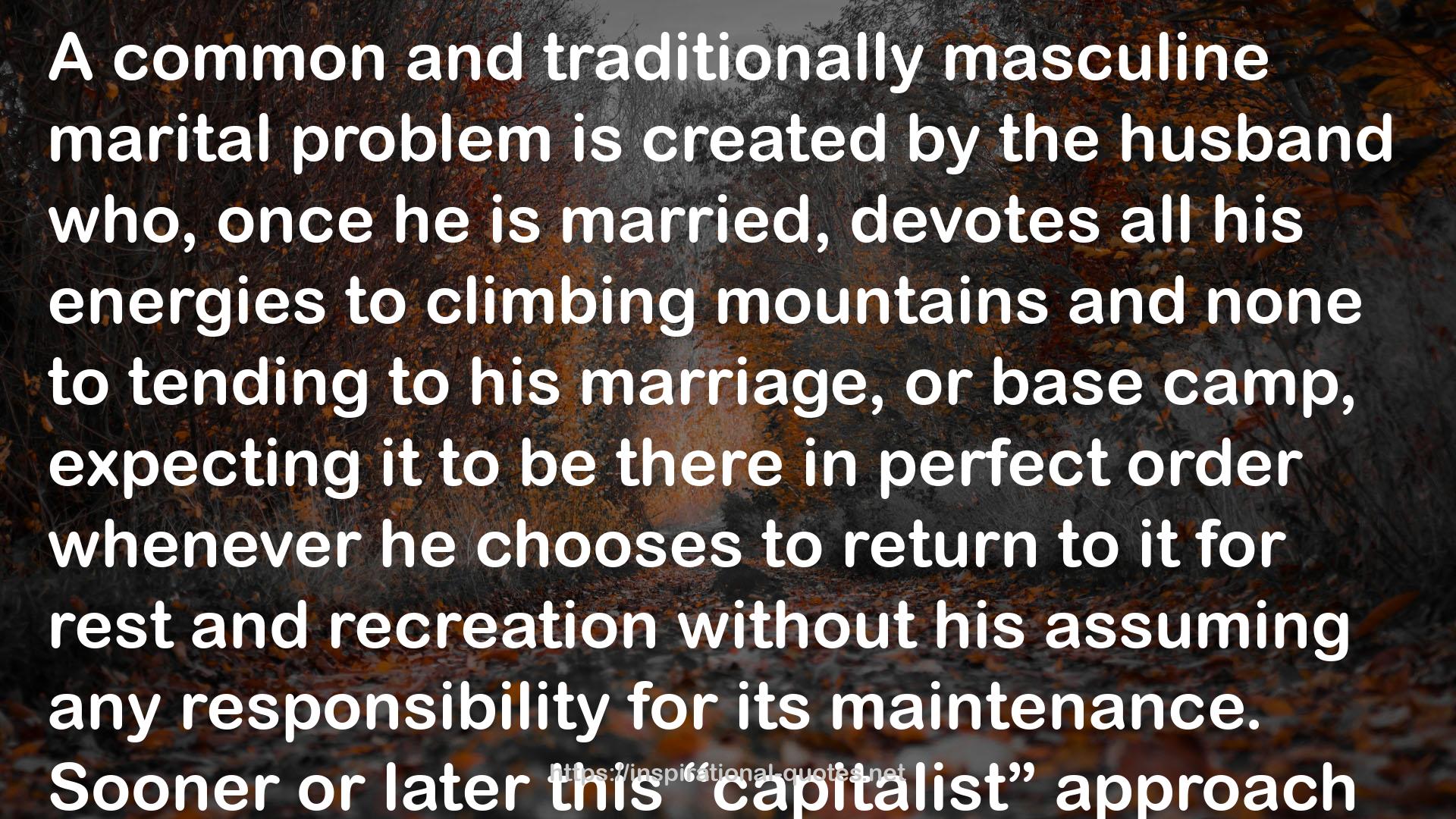" A common and traditionally masculine marital problem is created by the husband who, once he is married, devotes all his energies to climbing mountains and none to tending to his marriage, or base camp, expecting it to be there in perfect order whenever he chooses to return to it for rest and recreation without his assuming any responsibility for its maintenance. Sooner or later this “capitalist” approach to the problem fails and he returns to find his untended base camp a shambles, his neglected wife having been hospitalized for a nervous breakdown, having run off with another man, or in some other way having renounced her job as camp caretaker. An equally common and traditionally feminine marital problem is created by the wife who, once she is married, feels that the goal of her life has been achieved. To her the base camp is the peak. She cannot understand or empathize with her husband’s need for achievements and experiences beyond the marriage and reacts to them with jealousy and never-ending demands that he devote increasingly more energy to the home. Like other “communist” resolutions of the problem, this one creates a relationship that is suffocating and stultifying, from which the husband, feeling trapped and limited, may likely flee in a moment of “mid-life crisis.” The women’s liberation movement has been helpful in pointing the way to what is obviously the only ideal resolution: marriage as a truly cooperative institution, requiring great mutual contributions and care, time and energy, but existing for the primary purpose of nurturing each of the participants for individual journeys toward his or her own individual peaks of spiritual growth. Male and female both must tend the hearth and both must venture forth. As an adolescent I used to thrill to the words of love the early American poet Ann Bradstreet spoke to her husband: “If ever two were one, then we.”20 As I have grown, however, I have come to realize that it is the separateness of the partners that enriches the union. Great marriages cannot be constructed by individuals "
― M. Scott Peck , The Road Less Traveled: A New Psychology of Love, Traditional Values and Spiritual Growth
